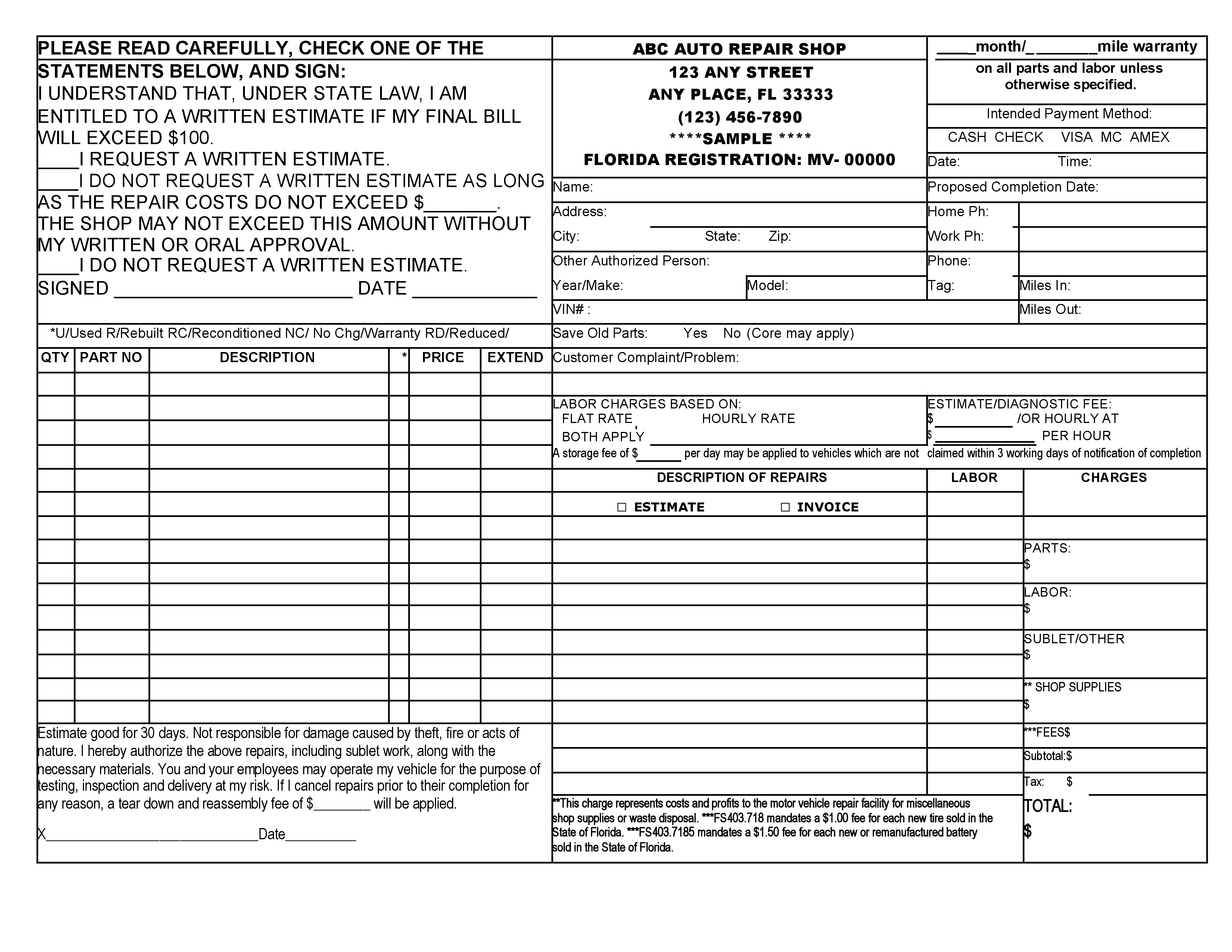Auto repair invoice template
Editable auto repair invoice. Modify shop name and customer name. Update with vehicle info an part / service items.
An auto repair shop typically offers a wide range of services to address various automotive issues.
Common services provided by an auto repair shop:
Routine maintenance: This includes services such as oil changes, tire rotations, fluid checks, filter replacements, and general inspections to keep the vehicle in good working condition.
Engine repairs: Auto repair shops can diagnose and repair engine-related issues, including diagnosing check engine lights, replacing spark plugs, repairing or replacing faulty components, and conducting engine tune-ups.
Brake repairs: Services related to the braking system, such as replacing brake pads, brake rotors, brake fluid flush, and repairing brake lines.
Transmission repairs: Repairing or replacing components of the transmission system, such as the clutch, gearbox, or torque converter.
Suspension and steering repairs: This includes services like wheel alignments, shock absorber replacements, ball joint repairs, and steering system maintenance.
Electrical system repairs: Troubleshooting and fixing electrical issues, including battery replacement, alternator repairs, starter motor repairs, and wiring repairs.
Air conditioning and heating repairs: Recharging the AC system, fixing leaks, replacing faulty components, and addressing heating system problems.
Exhaust system repairs: Repairing or replacing the exhaust system components, such as mufflers, catalytic converters, and exhaust pipes.
Diagnostic services: Using specialized tools and equipment to diagnose complex issues, identify error codes, and determine the root cause of various problems.
Body and paintwork: Some auto repair shops may also offer bodywork and paint services to repair dents, scratches, or damages caused by accidents or other incidents.
Why you might need an auto repair shop receipt or invoice
1. Proof of payment: The receipt or invoice serves as evidence that you have paid for the services rendered by the auto repair shop. It can be used for accounting purposes or to resolve any payment disputes that may arise.
2. Warranty coverage: If your vehicle is under warranty, the receipt or invoice acts as proof that you have performed the necessary repairs or maintenance as required by the warranty terms.
3. Insurance claims: In the event of an accident or damage to your vehicle, you may need the receipt or invoice to submit a claim to your insurance company. It helps provide documentation of the repairs and associated costs.
4. Reselling or trade-ins: When selling or trading in your vehicle, potential buyers or dealerships may request proof of recent repairs or maintenance. The receipt or invoice can demonstrate that you have taken care of the vehicle and provide a record of the work performed.
5. Tax purposes: If you use your vehicle for business purposes, you may need the receipts or invoices to claim deductions or expenses related to the repairs or maintenance as part of your tax filing.
It's important to keep copies of receipts or invoices for your records, as they can be valuable documents for various purposes related to your vehicle.
